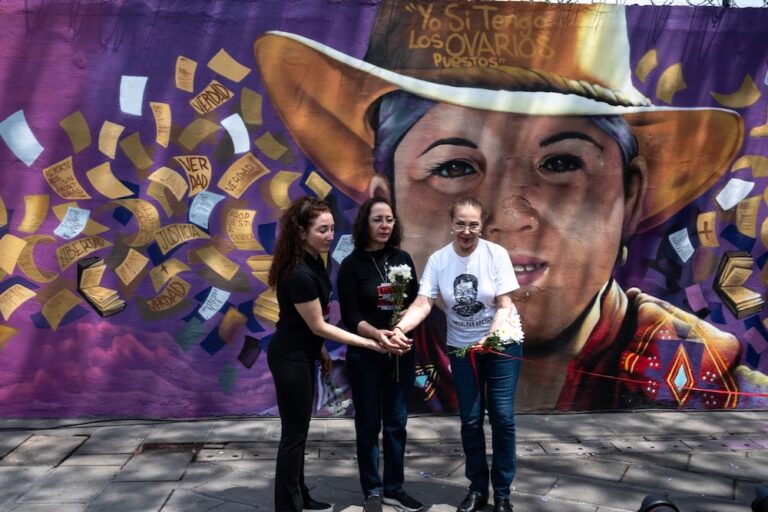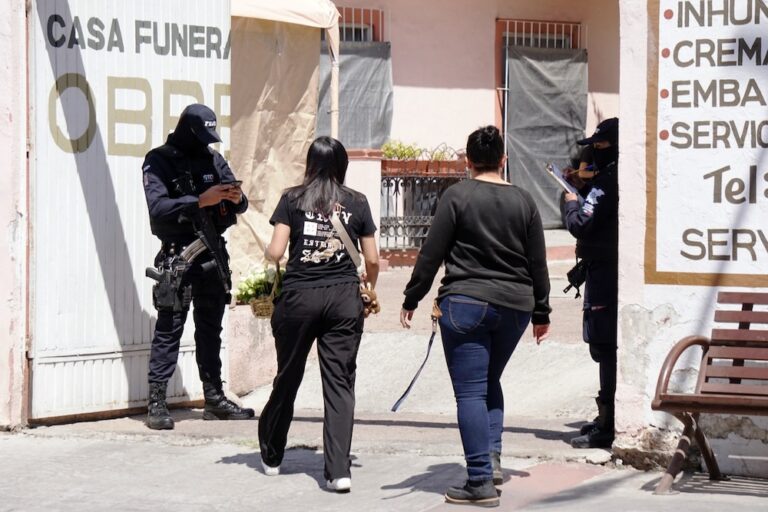(AMARC/IFEX) – The following is an abridged version of an 8 December 2004 AMARC press release: AMARC welcomes the granting of operating permits to two indigenous community radio stations On 6 December 2004, the Communications and Transport Secretariat (Secretaría de Comunicaciones y Transportes, SCT) granted operating permits to two indigenous community radio stations. Legal representatives […]
(AMARC/IFEX) – The following is an abridged version of an 8 December 2004 AMARC press release:
AMARC welcomes the granting of operating permits to two indigenous community radio stations
On 6 December 2004, the Communications and Transport Secretariat (Secretaría de Comunicaciones y Transportes, SCT) granted operating permits to two indigenous community radio stations. Legal representatives for Radio Jën Poj station and Radio Uandarhi station received the permits. Radio Jën Poj is based in Santa María Tlahuitoltepec, Oaxaca, and serves the Mixes indigenous community, while Radio Uandarhi is based in Uruapan, Michoacán, and serves the migrant purépecha indigenous community. This is the first time indigenous communities in Mexico have been authorised to operate and manage their own radio stations.
AMARC Latin America and the Caribbean (AMARC-ALC) welcomes this development but at the same time expresses concern over the delay in the granting of permits to eight other community radio stations that have also fulfilled the necessary requirements.
The federal government, via the Interior Ministry, recently promised to legalise all community radio stations that followed the application process and met the necessary requirements. Nevertheless, although the 10 AMARC affiliate stations submitted an application together, thus far there has been no indication from the authorities that the eight outstanding permits will be granted.
The special rapporteur for freedom of expression of the Inter-American Commission on Human Rights (IACHR) will be visiting Mexico on 10 December. He will be evaluating the extent to which the government has fulfilled the promise it made to the rapporteur in March to resolve issues regarding the status of community radio stations in the country.
AMARC-ALC notes that the IACHR and the special rapporteur for freedom of expression of the Organization of American States (OAS) have played an important role in this process, by highlighting, among other things, the significant role of community radio stations.
AMARC-ALC also recognises that the Mexican government has demonstrated some willingness to meet its obligations with respect to human rights. For example, the National Human Rights Programme (Programa Nacional de Derechos Humanos, PNDH) highlights the need for the state to provide citizens with the ability to operate radio and television stations. However, in order to be effective, the strategies outlined by the PNDH must be implemented immediately.
This is the second time in 39 years that the Mexican government has legalised a community radio station. The first was Radio Teocelo, a community station based in Veracruz, which was awarded an operating licence in 1965.


